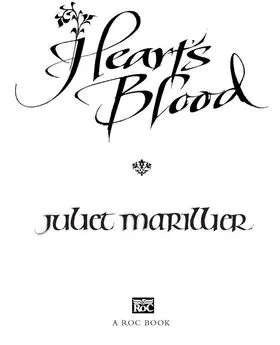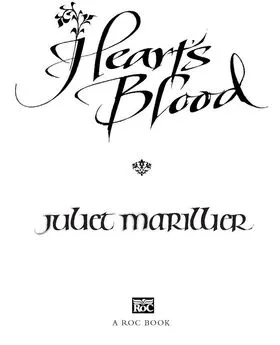Cybele's Secret - Juliet Marillier - Cybeles Secret
- Название:Juliet Marillier - Cybeles Secret
- Автор:
- Жанр:
- Издательство:неизвестно
- Год:неизвестен
- ISBN:нет данных
- Рейтинг:
- Избранное:Добавить в избранное
-
Отзывы:
-
Ваша оценка:
Cybele's Secret - Juliet Marillier - Cybeles Secret краткое содержание
Juliet Marillier - Cybeles Secret - читать онлайн бесплатно полную версию (весь текст целиком)
Интервал:
Закладка:
We moved on. As each merchant in turn inflated his prices to ridiculous heights and refused to bargain the way he would with a male customer, it became plain to me that none of them considered me a serious purchaser. I suspected their best wares were not even being brought to the front of the shop. Father was busy talking to people in the street; everyone seemed to know him. I could hardly blame him for not helping me when I had insisted on doing this on my own.
I became more and more frustrated. I found myself wishing Stoyan would come back so I could ask him to stand beside me and look threatening. I was determined not to leave empty-handed; that was to admit defeat.
I was in a little shop with a narrow doorway to a shadowy inner room. I could see rolls of silk in there: a lovely plum red and a very good mossy green. To judge the quality, I’d need to run the cloth through my fingers and inspect the weave in adequate light.
“Those silks—bring here,” I said, pointing. “If you please.”
Farther down the street, Father had halted to greet two merchants whose style of dress suggested they were Neapolitan. Their wives were with them, in modest gowns and veils.
The vendor was saying I would not be interested in those silks. He waved his hands, telling me he would send his boy to fetch others from storage.
“No! No send boy.” I adopted a more forceful approach, frowning and gesturing. “Those silks. Bring here, I look!”
The vendor shuffled his feet and mumbled at me, not meeting my eye. I was about to say something exceedingly impolite when a familiar voice spoke from behind me in Greek.
“May I assist?”
I turned. A tall, dashing figure stood there, clad in Turkish style in a red dolman and a wide sashlike belt over loose white shirt and trousers. A pair of dark eyes regarded me quizzically down an aristocratic, high-bridged nose. He was still wearing my scarf.
“You are too polite,” said Duarte. “You must stamp your foot, shriek with fury, and threaten to put him out of business.”
“I’m a grown woman, not a spoiled child,” I retorted, my annoyance fueled by frustration. “I do not require your assistance.”
The pirate grinned. His aquiline features took on a conspiratorial look. “We are friends, are we not, Mistress Paula? And I owe you a favor.” His fingers went up to touch the scarf. “Let me help, please.”
Without waiting for a reply, he addressed himself to the cloth vendor in fluent Turkish. I did not catch all of it, but he seemed to be saying that I was the daughter of an unbelievably powerful man and a personal friend of Duarte himself and that I needed to see everything in the shop right now or a terrible, unspecified pestilence would descend on the vendor and all his family. Then, less dramatically, that the trader could count himself fortunate that I had not yet spread word throughout the çarşi that he had insulted a lady.
The effect was stunning. The merchant produced a padded stool and invited me to sit. The tea glasses came out. I explained in Greek what I wanted to see, and, with a ferocious smile, Duarte relayed my wishes to the shopkeeper. The cloth was produced. I inspected it and assessed its quality. I mentioned shoes. The vendor said his boy would show us the best place to purchase fine-quality leather slippers. I spoke of braid and trimmings. The vendor told us how to find his cousin’s establishment in the street of kerchief sellers. One mention of his own name would assure us of attentive service, he added, glancing at Duarte nervously.
I haggled over the price of the silks. By now, we had acquired an audience: my father, the Neapolitan merchants and their wives, and a gaggle of small boys. My Turkish was quite sufficient for this part, but Duarte kept interjecting, threatening the hapless trader with several alarming fates should he take it into his head to cheat me. I ended up with lengths of both the plum and the green at a price I knew to be very fair for middle-grade silk. All the same, I felt dissatisfied. I had so wanted to do this on my own.
We moved on to the shoe seller and then to the kerchief street, where I made additional purchases. Our entourage went with us. Father was watching Duarte closely but did not intervene. He was always alert to anything that might give him a trading advantage. I could see he had made a decision to be unobtrusive and keep his ears open, since I seemed to be coping. The others watched with undisguised interest. I did not like the idea that my visit to the markets would hereafter furnish an amusing tale to be told in the hamam or amongst gatherings of Neapolitan traders. However, the opportunity was too good to let pass.
I purchased a pair of soft leather slippers in dark red, with a flower pattern tooled around the upper edge, and a length of elaborate braid that would look well with the moss-colored silk. I acquired plain, light veils in several shades and a quantity of fine muslin for smallclothes.
Duarte remained close by, putting in a word whenever he seemed to think it necessary. I was torn between irritation and curiosity. There was no need at all for him to do this. It went far beyond compensation for a cheap scarf, even if it had been my favorite.
As the vendor handed me the muslin wrapped up in protective cloth, Stoyan came into view with a package under his arm. The crowd parted as he strode toward us.
“Your watchdog is about to bark,” murmured Duarte in my ear. Through the thin silk of my headscarf, I could feel the warmth of his breath.
A moment later, somehow our guard was between me and the Portuguese. “Kyria, I will escort you,” he said, as if the other man were invisible.
Peering around Stoyan’s bulk, I saw Duarte leaning on a pillar, looking not at all put out.
“Ah,” the pirate drawled, “just in time. Mistress Paula has a great many packages for you to carry.”
I saw Stoyan’s right hand bunch itself into a fist, then relax as he checked himself. As a bodyguard, he knew what he was about.
“Finished, Paula?” Father spoke from the street, his tone calm. “My Neapolitan colleagues have suggested we repair to one of the coffee establishments near the waterfront to relax awhile before we cross back to Galata.”
“Yes, Father, I’m quite finished. Stoyan, I’m afraid I do have rather a lot of parcels. I’ll take some of them myself.”
“I will carry them, kyria.” He relieved me of the bundles.
I wondered if Duarte Aguiar was included in the coffee invitation, but when I looked up from dealing with the shopping, the pirate had vanished into the crowded maze of the çarşi, gone as suddenly as he had appeared.
I had not realized how exhausted I was until I sat down. The Neapolitans and their wives settled on the cushions of the coffee shop and introduced themselves to me while Stoyan put down the bundles and took himself off to procure drinks for us.
One of the wives, Fiorella, was asking me about Duarte Aguiar and how it was that I knew him so well.
“I don’t,” I told her. “He just stepped up and offered to help me.”
“He is very handsome, in an aloof kind of way,” put in the other woman, Gemma. “Those melting eyes and that strong profile…”
Father cleared his throat. “A man of his reputation does not volunteer to assist with domestic shopping on a whim. His behavior was odd.”
There was a brief silence. Then one of the merchants, a man named Antonio, said, “It is possible all of us are in Istanbul for a single purpose, Teodor: you, I, and Duarte Aguiar. Have you been invited to call upon Barsam the Elusive in his blue house?” His voice had dropped to a murmur. Everyone was speaking in Greek, the traders’ language. However, that in itself did not ensure confidentiality in this city of many tongues.
Father’s bearded features took on the neutral expression he used during trade negotiations. He could have been thinking anything. It was a trick I practiced sometimes in front of a mirror and was much harder than it looked. “I have met the Armenian,” he said noncommittally.
“I, too, have called on him,” said Antonio. He held his voice quiet, although we had seated ourselves at some distance from others in the coffee establishment. The fact that there were three women in our party made such separation essential.
“You expect to be called back?” Father asked.
“I understand that, when the vendor is ready, there will be a formal invitation to a viewing. Perhaps then we will discover the extent of the competition.”
Stoyan was threading his way back toward us, bearing a tray full of little coffee cups. As he placed it on the low table around which we sat, Duarte Aguiar came up the steps from the street and folded himself gracefully down onto his haunches beside me.
“Excuse me,” he murmured in Greek. “You left this.” He placed a small, cloth-wrapped package on the table by my hand. “My greetings to you, Master Teodor, Master Antonio, Master Enzo. I wonder if you have received an invitation to supper at the house of a certain Armenian merchant?”
There was a frozen silence. Father regained his self-possession first. “Would you care to join us, Senhor Aguiar?” he asked.
“Thank you, I will,” said Duarte, promptly settling himself in Turkish style, one knee up, the other leg bent alongside the low table. He inclined his head to me, to Gemma, to Fiorella. The other women blushed and smiled; I tried hard not to do so. A round of awkward introductions followed.
“I suppose my daughter owes you some kind of thanks,” my father said to Duarte, “though I’m not entirely sure she appreciated your assistance. Paula does not readily accept help. I know better than to offer it myself under such circumstances.”
I scrambled for a little dignity. “If you wish to discuss me, please remember that I am present,” I said, cheeks flaming.
“My apologies, Paula,” said Father. “Senhor Duarte, you mentioned an invitation. Are we to take it that you have received such a summons yourself?”
“My message came only this morning,” Duarte said, accepting a cup of coffee and looking at me out of the corner of his eye. “A supper to be held in five days’ time, to discuss a certain item for purchase. Perhaps there will be a similar summons for you on your return to your lodgings.”
“Who knows?” Antonio’s tone was light.
“I hear you are a keen collector of antiquities, Senhor Aguiar,” Father said. “Amongst other things.”
The pirate’s lips curved into an insouciant smile. “I share certain interests with you. I do not deny that,” he said. “These old pieces have such interesting stories attached, don’t you agree, Mistress Paula?”
“I have heard that you are a highly competitive trader, Senhor Aguiar,” I said. His casually confident manner annoyed me. He behaved as if he were not just the equal of any respectable merchant but somehow superior. But he intrigued me, too. The man was like a fascinating puzzle, full of secrets. Right now, he deserved to have someone challenge him. “You’ve proved that by your performance in the market. I am obliged to admit that my shopping expedition went a great deal better after your intervention.” I made myself look him in the eye. He had fine eyes, black, bold, and long-lashed. “However, my understanding is that you cannot be defined as a merchant in the way my father and his colleagues here might be.”
There was a little silence. I knew I had been rude, but the man irked me. Still more troublesome was the fact that I half admired his style. And nobody deserved to be so handsome. Gemma and Fiorella were staring at him, their faces shining with admiration.
Читать дальшеИнтервал:
Закладка:








